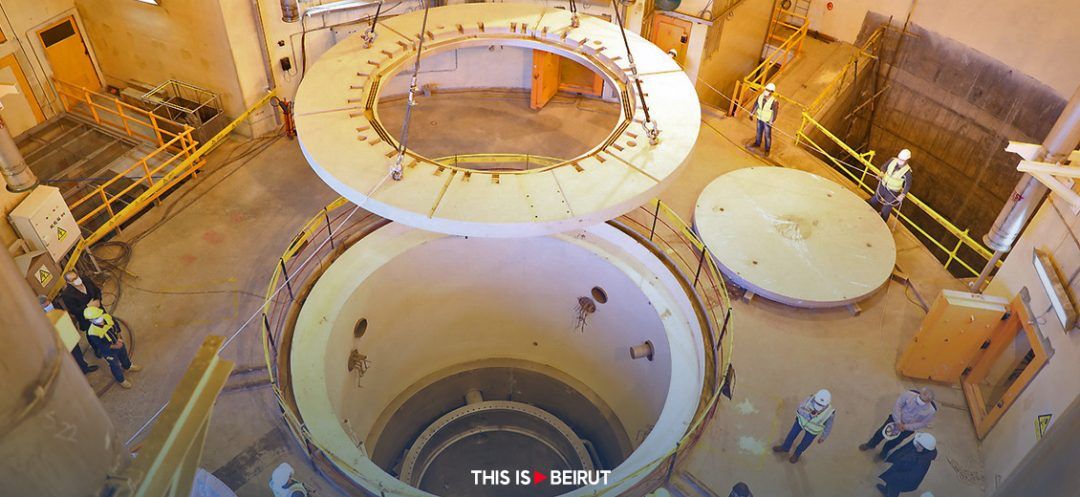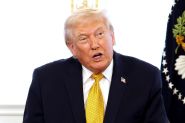- Home
- Middle East
- Iran: Pezeshkian's Victory, a Hope for Nuclear Negotiations

©(AFP)
Masoud Pezeshkian's victory in Iran's presidential elections has given a rare boost to efforts for scaling down years of tensions over Tehran's nuclear program, even with no indication of any upcoming breakthrough in the crisis.
Pezeshkian's defeat of ultra-conservative Saeed Jalili, a former chief nuclear negotiator whose intransigence and style made him notorious among Western diplomats, is a relief for European governments as they seek to maintain dialogue on the issue.
The incoming president was backed by former President Hassan Rouhani, who while in office led efforts to defuse the crisis.
Pezeshkian also boasted on his campaign team former Foreign Minister Mohammad Javad Zarif, who had previously worked intensely with European officials over the nuclear dossier.
But even after taking office, Pezeshkian will in no way be Iran's number one figure on foreign policy or nuclear issues, with top authority resting with supreme leader Ayatollah Ali Khamenei who has led the Islamic republic since 1989.
The 2015 Iranian nuclear deal, known as the JCPOA, and concluded with the United States, China, Russia, France, Germany and the United Kingdom, was supposed to regulate Iran's atomic activities in exchange for the lifting of international sanctions.
But since the unilateral 2018 US departure from the agreement at the behest of former Republican President Donald Trump, the Islamic Republic has gradually freed itself from its commitments.
Tehran vehemently denies that it wants to acquire nuclear weapons, but its program continues to grow.
According to the International Atomic Energy Agency (IAEA), Iran is the only non-nuclear armed country to enrich uranium to 60% – close to the 90% needed to build a bomb – and to accumulate such large stocks.
Western diplomats who spoke to AFP said that a victory for Saeed Jalili would have further paralyzed the issue, describing him as a "hardliner," "who served up ideological speeches" during negotiations and was the embodiment of an inflexible line.
"Restoring the 2015 nuclear deal is no longer a realistic option as the facts on the ground have fundamentally changed," said Ali Vaez, Iran project director at the International Crisis Group.
"Iran's nuclear program is now too advanced, sanctions have proven too sticky, trust is at an all-time low, and the world powers are no longer on the same page."
But he added that Jalili's "inflexible and ideological approach" would have been bound "to put Iran and the West on a collision course."
With an experienced diplomatic team beneath Pezeshkian, "a series of transactional agreements that would help avert a crisis" could be possible, even if a "sustainable solution might still prove beyond reach," he said.
The Islamic Republic is keenly aware that any easing of sanctions will first have to be negotiated with Washington. Whether or not the Democrats remain in power is therefore a key piece of the puzzle.
Delphine Touitou, with AFP
Pezeshkian's defeat of ultra-conservative Saeed Jalili, a former chief nuclear negotiator whose intransigence and style made him notorious among Western diplomats, is a relief for European governments as they seek to maintain dialogue on the issue.
The incoming president was backed by former President Hassan Rouhani, who while in office led efforts to defuse the crisis.
Pezeshkian also boasted on his campaign team former Foreign Minister Mohammad Javad Zarif, who had previously worked intensely with European officials over the nuclear dossier.
But even after taking office, Pezeshkian will in no way be Iran's number one figure on foreign policy or nuclear issues, with top authority resting with supreme leader Ayatollah Ali Khamenei who has led the Islamic republic since 1989.
"No longer a realistic option"
The 2015 Iranian nuclear deal, known as the JCPOA, and concluded with the United States, China, Russia, France, Germany and the United Kingdom, was supposed to regulate Iran's atomic activities in exchange for the lifting of international sanctions.
But since the unilateral 2018 US departure from the agreement at the behest of former Republican President Donald Trump, the Islamic Republic has gradually freed itself from its commitments.
Tehran vehemently denies that it wants to acquire nuclear weapons, but its program continues to grow.
According to the International Atomic Energy Agency (IAEA), Iran is the only non-nuclear armed country to enrich uranium to 60% – close to the 90% needed to build a bomb – and to accumulate such large stocks.
Western diplomats who spoke to AFP said that a victory for Saeed Jalili would have further paralyzed the issue, describing him as a "hardliner," "who served up ideological speeches" during negotiations and was the embodiment of an inflexible line.
"Restoring the 2015 nuclear deal is no longer a realistic option as the facts on the ground have fundamentally changed," said Ali Vaez, Iran project director at the International Crisis Group.
"Iran's nuclear program is now too advanced, sanctions have proven too sticky, trust is at an all-time low, and the world powers are no longer on the same page."
But he added that Jalili's "inflexible and ideological approach" would have been bound "to put Iran and the West on a collision course."
With an experienced diplomatic team beneath Pezeshkian, "a series of transactional agreements that would help avert a crisis" could be possible, even if a "sustainable solution might still prove beyond reach," he said.
The Islamic Republic is keenly aware that any easing of sanctions will first have to be negotiated with Washington. Whether or not the Democrats remain in power is therefore a key piece of the puzzle.
Delphine Touitou, with AFP
Read more



Comments